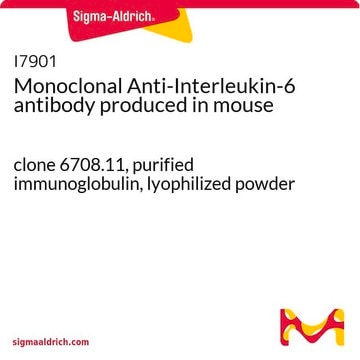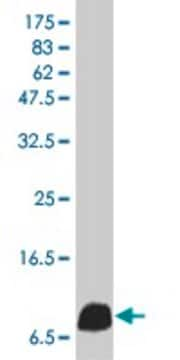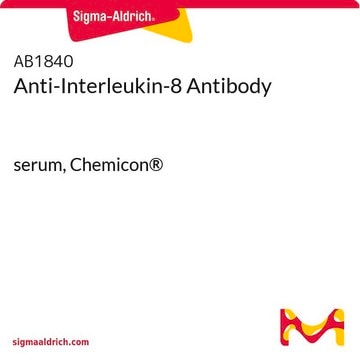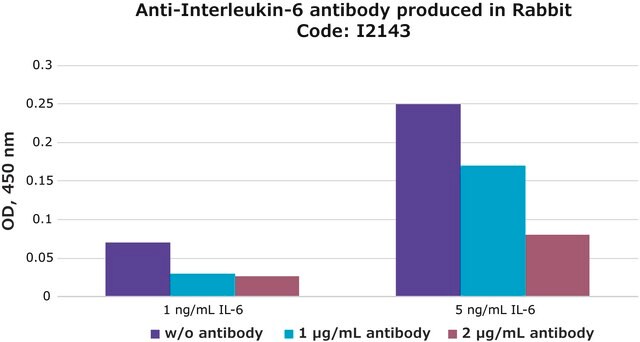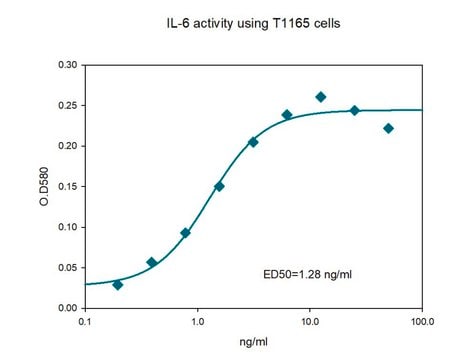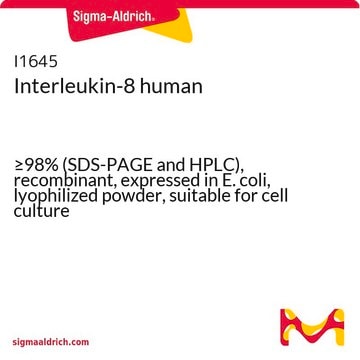I2519
Monoclonal Anti-Interleukin-8 antibody produced in mouse
clone 6217, purified immunoglobulin, lyophilized powder
Synonym(s):
Anti-CXCL8, Anti-IL-8
About This Item
Recommended Products
biological source
mouse
Quality Level
conjugate
unconjugated
antibody form
purified immunoglobulin
antibody product type
primary antibodies
clone
6217, monoclonal
form
lyophilized powder
species reactivity
human
technique(s)
capture ELISA: suitable
flow cytometry: suitable
immunocytochemistry: 25 μg/mL using using calcium ionophore- and PMA-stimulated human peripheral blood mononuclear cells
neutralization: suitable
western blot: 1-2 μg/mL
isotype
IgG1
storage temp.
−20°C
target post-translational modification
unmodified
Gene Information
human ... IL8(3576)
General description
Immunogen
Application
Physical form
Disclaimer
Not finding the right product?
Try our Product Selector Tool.
Storage Class Code
11 - Combustible Solids
WGK
WGK 2
Flash Point(F)
Not applicable
Flash Point(C)
Not applicable
Personal Protective Equipment
Choose from one of the most recent versions:
Already Own This Product?
Find documentation for the products that you have recently purchased in the Document Library.
Customers Also Viewed
Our team of scientists has experience in all areas of research including Life Science, Material Science, Chemical Synthesis, Chromatography, Analytical and many others.
Contact Technical Service
